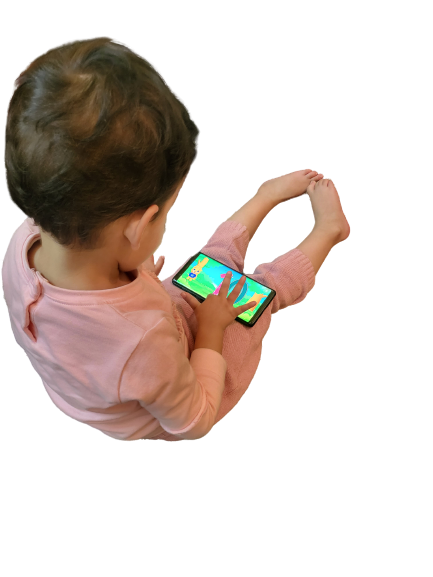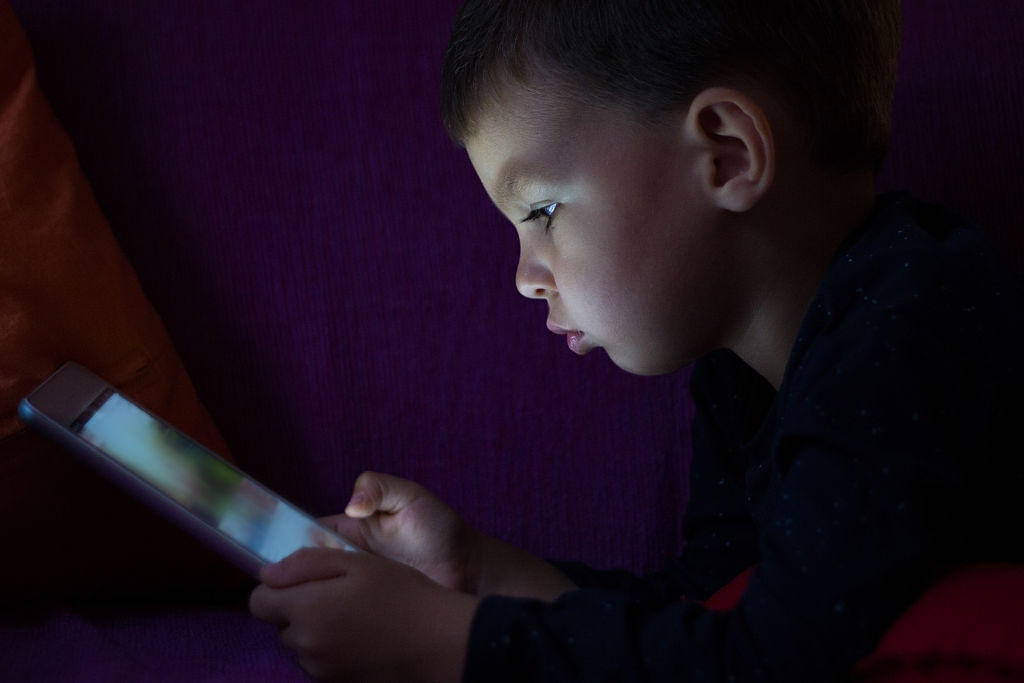Children’s Excessive Mobile Phone Use has become a threat to childhood
By Ajaz Rashid
The use of mobile phones has become an integral part of our daily lives, but have you ever stopped to think about the impact it is having on our children? With the increasing accessibility and affordability of smartphones, it’s no surprise that children as young as five years old are now using them. But, with this newfound technology, comes the consequences of excessive usage.
In recent years, studies have shown a significant increase in the amount of time children spend on their mobile phones. The average child now spends over 7 hours a day on their device, with some spending as much as 12 hours or more. This excessive usage has led to a range of negative consequences, including decreased physical activity, sleep disturbances, and decreased face-to-face communication skills.
Moreover, the impact of excessive mobile phone use on children’s mental health is of particular concern. Research has shown that excessive screen time can lead to symptoms of anxiety, depression, and decreased attention span. Children who spend more time on their mobile phones are also more likely to experience feelings of social isolation, as they spend less time interacting with friends and family in person.

While mobile phones have brought many benefits to our lives, it is important to be mindful of the impact they are having on our children. Excessive mobile phone use can have serious consequences for children’s physical and mental health, and it is up to parents, teachers, and society as a whole to help mitigate these negative effects. We must find a balance between the benefits of technology and the importance of maintaining our children’s well-being.
Global Impact
In today’s digital world, mobile phones have become a ubiquitous presence in our lives. Children, in particular, are spending more and more time on their devices, with some spending over 12 hours a day on average. While technology has brought many benefits to our lives, the excessive use of mobile phones by children is having a profound impact on their physical and mental health, and it’s a problem that is not confined to one country but is affecting children around the world.
In developed countries, children’s mobile phone usage has been linked to a decrease in physical activity, sleep disturbances, and decreased face-to-face communication skills. However, the impact on children’s mental health is of particular concern. This is a problem that is not limited to developed countries, as developing countries are also seeing the negative effects of excessive mobile phone usage among their children.
Moreover, the impact of excessive mobile phone use is not just limited to the individual child, but it is also having a global impact. Children who spend more time on their mobile phones are more likely to experience feelings of social isolation, which can have a ripple effect on their families, schools, and communities. Additionally, children who are addicted to their mobile phones are at risk of falling behind in their education, which can have long-term implications for their future success.
The excessive use of mobile phones by children is a global problem with far-reaching consequences. It is not just a concern for individual families but a problem that affects us all. It is up to parents, teachers, and governments around the world to work together to find solutions to this problem

Breaking the Addiction
The first step in solving the problem of excessive mobile phone use is to set clear limits on screen time. This can be done by setting specific times of the day when mobile phones are not allowed, such as during meals or before bedtime. Additionally, parents can encourage physical activity and face-to-face communication by setting aside time each day for play and family time.
Moreover, schools have a crucial role to play in addressing this issue. They can educate students on the dangers of excessive mobile phone use, and promote healthy habits through technology-free classrooms and outdoor activities. They can also encourage parents to be more involved in their children’s technology use by having open and honest conversations about the dangers of excessive screen time.
Another important solution is to promote alternative activities and hobbies that can provide a healthy balance to mobile phone use. For example, children can be encouraged to take up sports, join clubs, or pursue creative interests. These activities not only help break the cycle of excessive mobile phone use but also foster the development of important life skills.
A Wake-Up Call
According to some studies, the most common determental affects of mobile phones on children are:
- Behavioural problem
- Addiction to gadgets
- Depression
- Sleep disturbances
- Eyesight problem
- Obesity
- Academic performance
- Academic malpractice
- Access to inappropriate media
- Attention and hearing issues

BENEFITS
Easy communication
Safety
Peer contacting
Digitally equipped
Boosts creativity
Primary education
Information access
Entertainment
An open letter to the world’s children
Why I am worried: The world wide web was born in the same year as the Convention on the Rights of the Child, 30 years ago. Today it has radically changed the world and reshaped childhood and adulthood alike. More than 1 in 3 children globally are thought to be regular users of the internet, and as this generation grows up, that proportion is set to grow and grow.
Debates about the benefits and dangers of social media for children are becoming familiar, and more action to protect children from bullying and exposure to harmful content is certainly needed. Parent and children are also becoming aware of the risk of sharing too much personal information on social media. But the truth is, the data contained within social media profiles created by children are just the tip of the data iceberg. Less well understood but at least as important, is the enormous accumulation of data being collected about children.

Personal information created during childhood may be shared with third parties, traded for profit or used to exploit young people – particularly the most vulnerable and marginalized. Meanwhile, identity thieves and hackers have exploited vulnerabilities in e-commerce platforms to defraud and exploit adults and children alike; search engines track users’ behaviour regardless of their age, and government surveillance of online activity is increasingly sophisticated around the world.
Too often, children do not know what rights they have over their own data and do not understand the implications of their data use, and how vulnerable it can leave them. Privacy terms and conditions on social media platforms are often barely understood by highly educated adults, let alone children.
Where children use social media they need to have real opt-in or opt-out opportunities in relation to how their data are used by the provider or other commercial interests, and the terms and conditions need to be clear and understandable to children
From UNICEF’s Executive Director Henrietta Fore
[…] an exponential rise especially among the kids under the age of 5 years, especially with the use of mobile phones and tabs. Kids now a days are highly susceptible to digital eye strain, and hence it is the duty of the […]